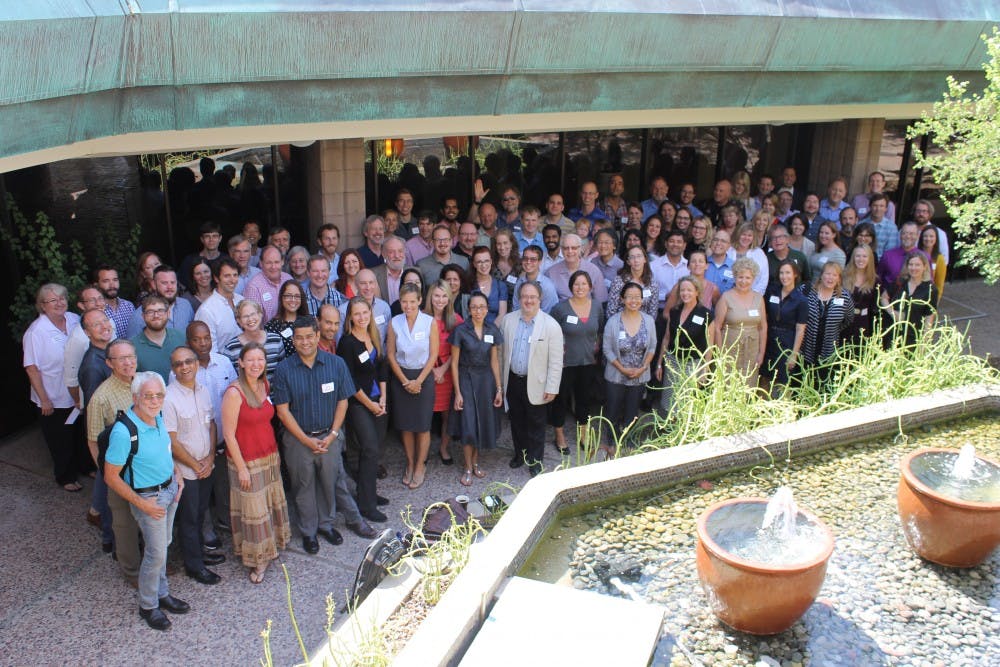Merging innovation with science and policy, an ASU research organization has become a full-fledged school with an undergraduate program.
Launching its first undergraduate program this fall, the School for the Future of Innovation in Society began with a four person team as the Consortium for Science, Policy and Outcomes at ASU in 2004.
CSPO is a think-tank research organization that takes the research side of science and technology and adds a social science aspect to improve society. The organization conducts research, contributes to the public conversation on science policy and makes suggestions to policymakers and the public.
CSPO has made innovation a priority since its conception in 1999 when the current University president Michael Crow founded it in Washington, D.C. Through taking science research and adding the social science aspect, CSPO began to initiate a new and important conversation by merging policy and research fields.
“Innovation is not just the identifying and creating ... something new in the world; I want to call that invention," said David Guston, the consortium's co-director and now a founding director of the School for the Future of Innovation in Society. "But innovation really happens when that new thing is taken up by a broad (section of) society. That’s why that public engagement stuff is really important because it’s about the transition from something that’s new to something that’s new and useful.”
The school began with a Ph.D program in human and social dimensions of society, and then launched two masters programs: science and technology policy and applied ethics.
After a year of operation, President Crow wanted the school to add an undergraduate program. This fall, SFIS opened a program offering a BS, BA, minor and certificate in innovation in society.
Designed for students to be able to complete coinciding majors or a minor or certificate, the undergraduate program allows students to combine interests.
“What we're trying to do is give people who might be coming with a more science or engineering orientation the opportunity to explore their interests on the policy and social and ethical side,” Guston said. “Where people who might be in the humanities and social sciences who see some overlap with what they’re doing with (what is) going on in science and innovation to explore that opportunity."
Since the path to creating SFIS began, the growing faculty has brought more excitement to the program.
“It’s been sort of like a whirlwind, because it happened so fast,” Lori Hidinger, Managing Director of CSPO and and SFIS said. “We had been sort of protected as a research center under another big unit. Now we’re kind of off on our own, figuring things out, so that’s been good. We’ve had a lot of really exciting research programs.”
Encountering challenges through the transition is to be expected.
“The biggest challenge is creating an undergraduate program and making it robust," David Guston said. "And we have right now a small undergrad program — I kind of call it our training-wheels sized program — and we don’t know how it will be received, we don’t know how quickly it might grow.”
Guston and Hidinger were among first faculty at CSPO at the University. Hidinger said that the biggest concern she saw with this transition into a larger entity was “... (keeping) that sense of community (and continuing to) challenge the status quo instead of becoming it.”
The SFIS rooms in Interdisciplinary B have signs that read "Keep CSPO weird” to reflect the character of the “quirky” think-tank organization that began with change and innovation in mind, Hidinger said.
Students like SFIS doctoral student in human and social dimensions of society Carlo Altamirano-Allende said that the benefits of CSPO becoming a school will be "being able to bring more students to the table to study things that CSPO studies and to kind of institutionalize their methods.”
Between the collection of scholars that CSPO has brought together through their projects and the ways they are trying to develop relationships with the public and with scientists and engineers, the organization set up the school to be productive and innovative, Guston said.
Reach the reporter at madison.arnold.1@asu.edu or follow @madisonC_arnold on Twitter.




